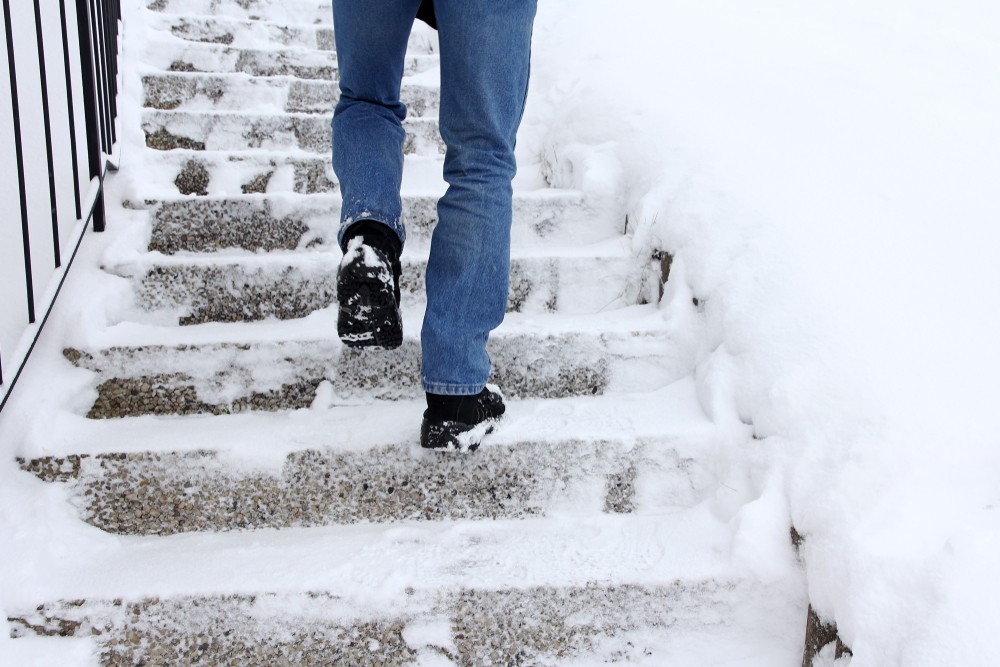Play it Safe when Jack Frost Visits

With winter weather blanketing much of the country, that also means more slips and falls from the ice and snow that comes along with it. According to the Centers for Disease Control and Prevention (CDC), approximately one million Americans are injured each year as the result of falling on ice and snow and one out of five falls causes serious injury.
While many winter weather-related fall injuries are minor and can be treated at home with rest, some can be quite serious to the point of needing surgery. So how can you stay safe this winter, and what can you do to avoid serious injury from an icy fall?
“I think people should be aware that falls can be a serious hazard to the body. Bones can be brittle and certain falls can cause bones to break. In orthopedic surgery we see major extent of falls. It’s important to keep your bones healthy, keep your joints strong, keep your muscles strong with appropriate use of vitamin D and calcium to prevent fractures,” says Sujal Desai, D.O., fellowship-trained orthopedic surgeon, OSF HealthCare.
Some of the injuries that can occur from a slippery fall include torn ligaments, broken bones, along with sprains and strains. The most common areas injured are the hips, knees, and shoulders. When it comes to shoulders, Dr. Desai says your rotator cuff is at greatest risk for injury.
“There’s two causes of rotator cuff tears, which is the thing you worry about when it comes to rotator cuffs. Number one is usually from an overuse or repetitive injury – for example, shoveling in the winter, overhead lifting or overhead movements. Repetitive movements can cause tearing of that tissue and that would cause long-term pain. Number one is a repetitive cause of it. Number two is traumatic – if someone falls on an outstretched hand or someone has a sudden movement about their body and they’re trying to stabilize a fall,” explains Dr. Desai.
So how will you know if your rotator cuff was injured?
“Typically patients report a pop or a tear, that they felt something went wrong in their shoulder. Sometimes people don’t necessarily report that and they just feel sudden pain that just doesn’t go away and difficulty with moving their shoulder or upper arm.”
When it comes to any injury from a fall – whether it’s your shoulder, hip, or knee – Dr. Desai recommends treating the site at home as soon as possible.
“The first line of treatment is rest, ice, anti-inflammatories to rest the joint and relieve some of the local inflammation that happens from the injury. But if something is more severe, 48 hours later patients will still have symptoms and they may need to come in,” Dr. Desai advises.
Most importantly, take preventative measures to avoid a fall.
“I think patients should be aware of their surroundings number one. Typically the risk of falling is carrying too many objects in their hand and losing their balance, slippery surfaces on the ground. Patients should wear good footwear with traction to prevent falling,” cautions Dr. Desai.
If you experience a fall that causes pain that continues for more than 48 hours, go to your nearest emergency room or make an appointment with your primary care physician to assess the injury and determine the best course of treatment.

